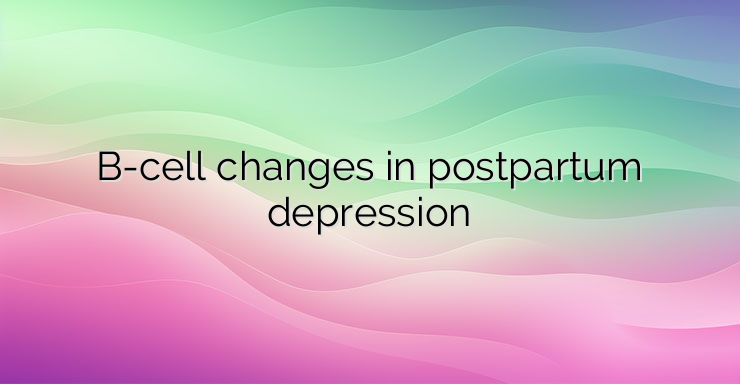Postpartum depression is a condition in which a woman’s normal mood after giving birth is significantly affected. This problem should not be ignored, since in many cases it is possible to seriously deepen it. For this reason, a group of researchers from the University of North Carolina School of Medicine looked at a number of biological processes in mothers with postpartum depression to understand what is different between women with the condition and those without it. They revealed significant differences in their B-cells. Postpartum depression affects 1 in 7 women. This disorder negatively affects the emotional state of both the mother and her child. The details of the condition have not yet been fully clarified. Much biological research focuses on possible causes and methods of treatment. However, for optimal results, it is advisable to take several different methods to improve the condition. Not every manifestation of postpartum depression is the same Previous studies analyzed whole blood samples, while the team from the University of North Carolina took a deeper look and examined the different components of the blood of different women. The study analyzed blood samples from 1,500 women of different ethnic backgrounds who had given birth within six weeks. Postpartum depression was diagnosed in 482 of them. The methods researchers use to analyze the blood samples include RNA sequencing, DNA genotyping, and others. The results showed significant differences in the B cells of women with postpartum depression. B cells are an important part of the immune system. They are activated when their receptor recognizes an antigen and binds to it. The activated B cells then produce antibodies and also secrete pro- and anti-inflammatory factors. The researchers found individual B-cell transcripts that were different from those in women without postpartum depression, regulated in part by genetic variants and DNA methylation. To confirm these findings, they performed pathway analysis that implicates altered B-cell activation and insulin resistance. This is the first such large study done on women with postpartum depression. Because of this, researchers have not yet clarified the specific cause of the changes occurring in the B-cells and whether they are not the result of disorders that occur in another part of the body, caused by the onset of postpartum depression. The study was published in the journal Molecular Psychiatry. References: https://www.nature.com/articles/s41380-022-01525-7


Leave a Reply